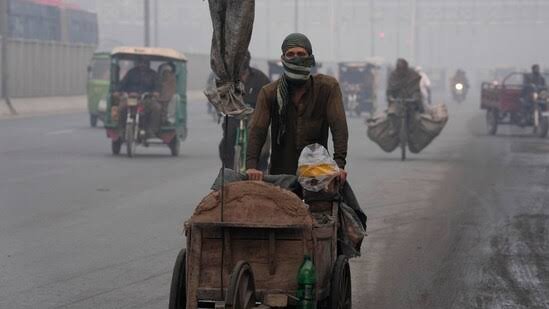
Air pollution in Pakistan has reached alarming levels, with major cities like Lahore consistently ranking among the most polluted in the world. As of early November 2024, Lahore’s Air Quality Index (AQI) was recorded at over 470, which is considered hazardous for all individuals, especially those with pre-existing health conditions.

Key Factors Contributing to the Crisis:
Crop Residue Burning: The seasonal burning of agricultural residue in Punjab and neighboring India significantly contributes to the spike in air pollution. This practice releases large amounts of particulate matter, exacerbating smog formation.
Vehicular Emissions and Industrial Activity: Rapid urbanization and increasing vehicle numbers also contribute to the rise in pollution. Many industries in urban centers emit large amounts of smoke and pollutants, further deteriorating air quality.
Climate Change Effects: Pakistan’s vulnerability to climate change exacerbates the situation. Irregular weather patterns, including heavy rains and temperature shifts, worsen smog levels, especially in the winter months.
Government Actions:
Smog Control Measures: Local authorities in Lahore have implemented measures like the “green lockdown,” which restricts outdoor activities and switches schools to online education to reduce exposure.
Pollution Monitoring: Efforts to monitor and reduce pollution, such as the installation of anti-smog devices and enforcement of regulations on crop burning, have been put in place but have yet to yield significant long-term improvements.
Health Impacts:
Respiratory Issues: High AQI levels pose serious health risks, including asthma, bronchitis, and heart diseases, especially for vulnerable populations like children, the elderly, and those with pre-existing health conditions.
Increased Mortality Rates: Studies indicate a significant rise in deaths due to air pollution-related diseases, with an increasing strain on public health systems.
Regional Collaboration Needed:
The issue is compounded by cross-border pollution, with neighboring India also contributing significantly to the smog in Pakistan. Experts suggest that international collaboration and stronger regional agreements are necessary to combat this growing environmental threat.
This dire situation underscores the urgent need for both local and global efforts to reduce emissions and promote sustainable agricultural practices.



